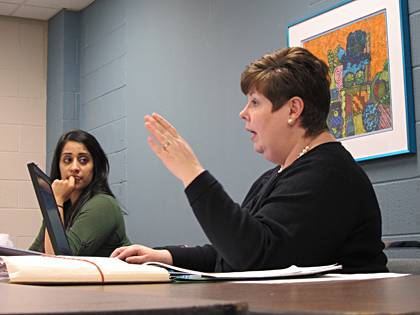Career Tools: Professional Groups For Development
Professional associations offer opportunities to network, lead and learn

Michelle Evans hesitated at the conference room door. She wondered whether any of the confident looking women dressed in business suits would want to talk with her, an administrator at Duke with two years of experience.
Then the president of the Business and Professional Women chapter walked up, shook her hand warmly and asked about her career aspirations.
That was seven years ago.
"It was the beginning of a wonderful relationship, both with the president and the organization," said Evans, an administrative manager for Duke's Research Integrity Office.
Evans is now the president of the Raleigh chapter of Business and Professional Women, a national organization that focuses on improving the lives of working women through networking, education and development opportunities.
Over the years, her membership in the organization has taught her tricks to calm nerves when at the podium presenting to professionals and steps for parliamentary procedure to ensure all issues are discussed during a meeting before a vote.
"It is a nurturing environment where I can feel comfortable exploring new sides of myself," Evans said.
Some professional groups, like Business and Professional Women, bring together employees from different occupations around a common passion. Other organizations, such as the American Society of Landscape Architects, focus on professionals from specific industries.
A common thread is that organizations offer opportunities to learn new knowledge and skills and expand a professional network.
Meg Flournoy, associate director of Career Services at the Fuqua School of Business, recommends following a passion when looking for professional organizations to join. "Find an organization that energizes you and brings meaning to you personally," she said. "Then figure out how to bring that energy back to your job."
For Evans, membership in Business and Professional Women led to her becoming secretary after a few months.
A few years later, Evans was asked to provide administrative support to Duke's Conflict of Interest Committee, a group that regularly uses parliamentary procedure.
"I never would have guessed parliamentary procedure was a skill I would use at Duke," Evans said. "But I was glad that I had learned it."
She also honed public speaking skills and found opportunities to speak to large groups within her professional organization. When her manager at Duke asked her to present to senior faculty on the progress of a new initiative, she accepted the assignment.
"That's the beauty of learning skills in organizations outside of work," Evans said. "It gives me confidence in using them when the time is ripe at Duke."